The morning commenced with symposium convenor, Dr Toby Trahair, who explained the role of grants as a central mechanism of funding research. He emphasised the importance of research impact and outcomes, and the translation of research into practice. We were privileged to have the opportunity to learn from a range of guest speakers with specialist expertise and success within key competitive funding schemes.
Dr Claire Wakefield: Grant funding from the perspective of an early career researcher
The first speaker, and also the BSU Program Leader, Dr Claire Wakefield, provided insight into the challenges of grant writing, and gave practical advice about how to write grant applications. Dr Wakefield discussed the importance of a good idea. We must be ‘adaptive grantsmen and grantswomen’ and adapt our ideas to fit the funder’s priorities. She also raised the importance of a multidisciplinary team. Dr Wakefield focused on proposal writing, including the need to follow application instructions carefully. She showed how researchers can use rhetorical moves to prove why their research is needed, and discussed the value of pilot data. She emphasised how important it is to highlight plans for translation of research into clinical practice. Her application of Aristotle’s rhetorical triangle, that is, the combination of logic, credibility and emotion, in grant writing was very interesting.
| Dr Antoinette Anazodo: Engaging philanthropic support for research Following this, Dr Antoinette Anazodo, director of the Adolescent and Young Adult Cancer Service at Sydney Children’s Hospital and Prince of Wales, shed some light into establishing a national, collaborative research program. She discussed the concern that many researchers have in needing to gain data before obtaining any funding. Using her FUTuRE Fertility study as an example, she presented the many possibilities of philanthropic support, and how best to engage such funding in your project. You can learn more about the Future Fertility study here: http://www.futurefertility.com.au/ |
| Associate Professor Jenny Byrne: Biobanking, infrastructure grants and translational research A/Professor Byrne highlighted opportunities for junior researchers to secure equipment and infrastructure grants to support their research. She discussed how important it is to have access to the best possible equipment to be internationally competitive and how equipment grants can be especially useful for early career researchers to build their track records. A/Prof Byrne showed how important it is to demonstrate a scientific need for the equipment, and how you will share the resource with other research groups when possible. She concluded by sharing her experiences in working with biobanks and how best to support their operations. |
| Professor Richard Lock: Animal modelling – the role of in vivo evidence Professor Lock presented a fascinating talk about the importance of animal modelling in research. He taught the audience about the available experimental models for paediatric cancer research, describing both the advantages and disadvantages of each approach. He focussed on what makes a competitive grant application and provided useful tips to create strong applications. He then described how he had used a leukaemia animal model to build a world class research program. |
| Ms Anne Kay: Consumer involvement in research – how to do it well Next, Ms Anne Kay, Chair of ANZCHOG’s Patient and Carer Advisory Group, discussed the role of consumers in research. By introducing meaningful bi-directional activities between researchers and consumers, consumers can help to avoid making practical mistakes in their applications. Ms Kay gave tips from the perspective of a consumer on a grant review committee, including points such as the importance of identifying a problem through past research, explaining the significance of your research, providing a clear and concise lay summary, ensuring an appropriate level of consumer involvement, and addressing potential participant burden. |
| Professor Madeleine King: Quality of life measurements in clinical trials We were also privileged to have Professor Madeleine King, Cancer Australia Chair in Cancer Quality of Life at the PsychoOncology Co-operative Research Group, present general tips for young researchers about including the use of quality of life (QoL) assessment in grant applications. Professor King stressed the need to tailor your QoL measures to your study. Although measuring QoL can enrich our understanding of patient experiences, she suggested QoL measures may not be the best primary outcome for all studies, especially those involving active cancer treatment when survival is a key research focus. QoL is however often the primary focus in survivorship and palliative care research. Of note, a recent study Professor King has been working on suggested no bias between modes of administration of patient reported outcomes. |
| Mr Richard De Abreu Lourenco: Health economics – what is it and why is it important? Following Professor King’s talk, Mr Richard De Abreu Lourenco, Research Fellow at the Centre for Health Economics Research and Evaluation, University of Technology Sydney, provided an extensive overview of what health economics is, and why it is important. Health economics asks whether your project is addressing a question that has the potential to increase the total health of society. He outlined the key steps to completing a rigorous economic evaluation and explained that economic evaluations are always comparative. He reminded the audience that every activity has an opportunity cost which is important to consider when trialling new interventions. |
| Dr David Ziegler: Advice and strategies for successful applications Next, Dr. David Ziegler, Head of the Clinical Trials Program at the Sydney Children’s Hospital gave general advice and strategies for successful grant applications. He stressed the importance of not giving up on grant applications as researchers are unsuccessful more often than not. He outlined the steps it takes to write a good grant – in particular, recommending telling a story that has a strong opening and ending, grabs attention and intrigues the reader, and ensuring the building of bridges ensure to translation of your research to practice. |
| Professor Glenn Marshall: How to start and then sustain a research career To finish up the symposium, we were honoured to have Professor Glenn Marshall, Director of the Kids Cancer Centre at the Sydney Children’s Hospital present on how to start and also to sustain a research career. He prioritised his role as a clinician-scientist, and emphasised that writing grants are not a waste of time, even if they are unsuccessful. He recommended seeking plenty of peer advice during the writing process and prioritising publishing the results of your completed studies in the highest possible quality journals. |
The BSU is proudly supported by the Kids with Cancer Foundation.
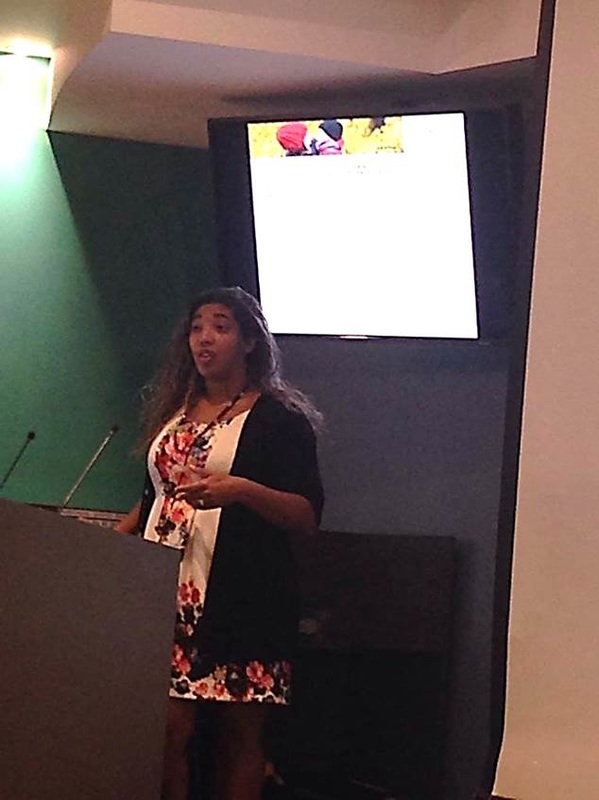
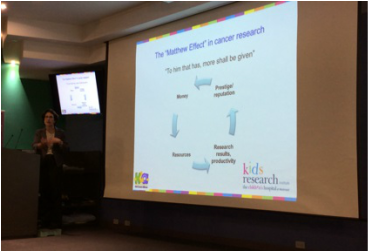
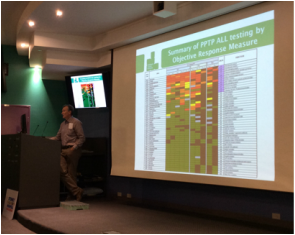
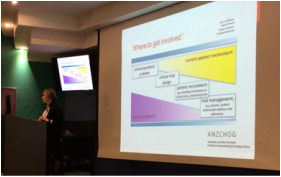
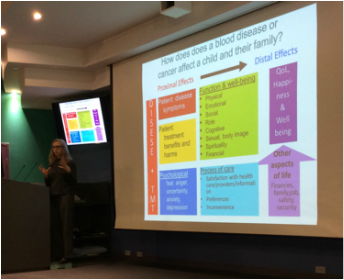
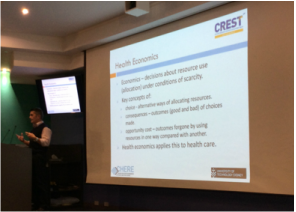
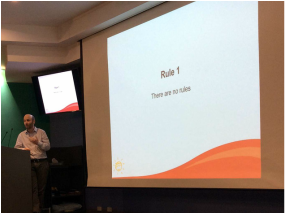
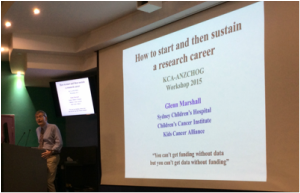
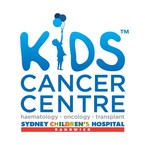

 RSS Feed
RSS Feed